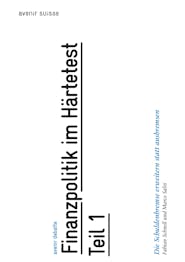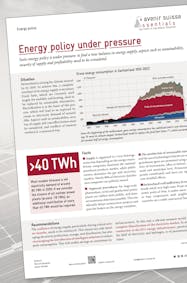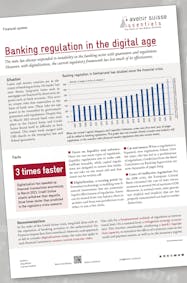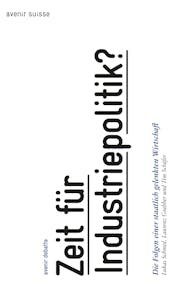Switzerland is generally seen as a star pupil when it comes to budgetary rectitude. But considering likely pressures, preserving the debt brake may become ever more difficult. Some have even called for a relaxation. As an Avenir Suisse/Sotomo survey shows, such demands do not reflect popular thinking. The overwhelming majority prefer budgetary policies focused on savings, with any surpluses earmarked for reducing government debt. That means expenditure should be based on revenues – though the survey also reveals calls for savings in public administration (-24 %) and agriculture (-13 %). By contrast, many respondents would like to see taxpayers’ money used more efficiently and spending stepped up for security (+5 %) health (+7 %) and education (+5 %).
A generational conflict regarding a debt brake in social security
Against those findings, it is surprising there is as yet no majority for extending the debt brake to the social security system. Some 49 % of respondents were opposed and only 39 % in favour. But the question also revealed a generational split, with a debt brake being supported by most respondents aged under 45.
Three suggested reforms for federal finances
Based on the analysis of federal spending and pr0mpted by the survey results, Avenir Suisse co-authors and Senior Fellows Fabian Schnell and Marco Salvi proposed three relatively uncontroversial reforms to ensure the federal budget can remain secure from spiralling borrowing.
- Expand so called “discretionary” spending. The Swiss parliament is growing increasingly inclined to anchor spending in law. But that removes necessary flexibility for the debt brake to operate. A ban on infrastructure funs and other special funds is necessary, along with greater flexibility in social expenditure.
- A referendum on updating the debt brake. The debt brake mechanism still has not really faced its toughest test, and there is no procedure to cover the possibility of parliament one day disagreeing on its implementation. That highlights the need for a timely update. One solution could be along the lines of that already operating in the canton of Vaud. There, a packet of measures to restrict expenditure must be presented to voters in a referendum. It’s then up to citizens for themselves to decide whether they prefer spending cuts or higher taxes.
- A fiscal rule for social security. Social security is the least predictable part of the federal budget because the impact of demographic change cannot, at present, be accounted for. So here too, automatic mechanisms should be introduced to ensure long term equilibrium between income and spending. The survey indicates, however, that a lot of political groundwork is still required for the introduction of this tool.
The government and politicians should use Switzerland’s current, still comfortable, financial situation to ensure a resilient future for budgetary policy.






